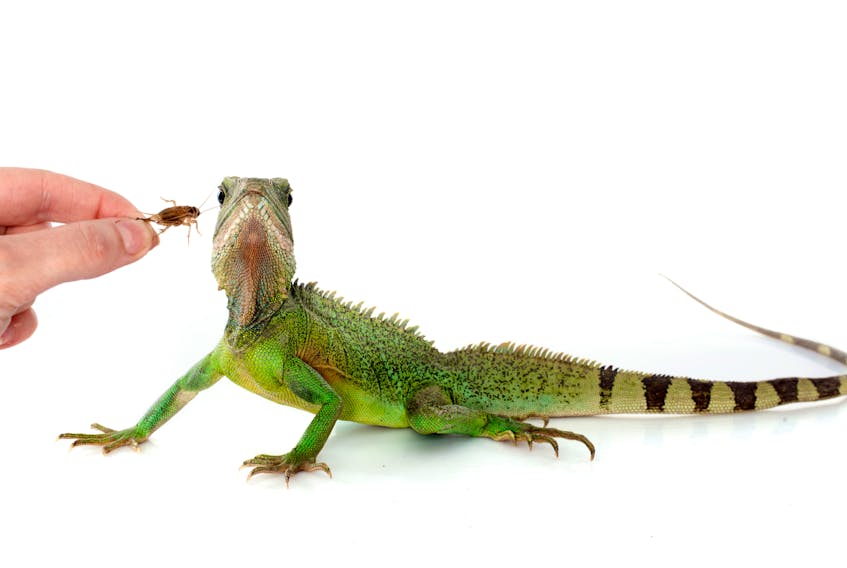Just before ushering in the new year, an article about the exponential increase in pet lizard breeding in Prince Edward Island was brought to my attention. Working on exotic pet issues for almost a decade, I am deeply troubled that the major issues inherent to the exotic pet industry are not getting more attention. What few people realize is that the growth of this largely unregulated industry comes with a high cost to animals, public health, biodiversity and our environment.
Make no mistake, the parrots, lizards, and frogs for sale in pet stores and online are wild animals and make completely inappropriate pets. These animals have not evolved to live alongside humans. Their behaviours and needs are complicated and, in many cases, poorly understood. In captivity, these animals often suffer from chronic stress and poor physical health because the freedom and array of choices they would have in the wild cannot be replicated. Many injuries are caused solely because of captivity, like skin burns and bone diseases.
We know from desktop research that Canada is home to more than 400 exotic pet breeders, some of whom are in P.E.I. Captive breeding can be as cruel as capturing animals from the wild. Animals are usually housed in stacked plastic drawers that bear no resemblance to their natural environment; many animals never see the light of day. Intensive processes like inbreeding are used to produce unnatural scale and colour patterns, also known as morphs. These practices have led to neurological issues and physical problems such as the malformation of the skull which can cause health issues.
But animal welfare is not the only cause for concern with this industry. The exotic pet trade is one of the drivers of biodiversity loss and is responsible for many invasive species that are harmful to local environments and costs the government billions. Animals like parrots and snakes are still taken from the wild because it is cheaper than captive breeding and can provide new genetics to create new morph patterns.
Another major issue inherent to the exotic pet trade is the risk of zoonotic diseases. About 75 per cent of all new or emerging infectious disease originate from animals, mainly from wildlife. Without comprehensive screening and strict quarantine protocols, diseases can be imported alongside the animals. In Canada, most reptiles and amphibians are not subject to any import restrictions and since the exotic pet industry is largely unregulated, importers can determine for themselves whether to quarantine an animal. While screening is important it is not the solution since it is impossible to screen for diseases we do not yet know exist.
Animals can also be vectors for diseases that do not make them sick. Salmonellosis is probably the best-known example. In 2014, 2019 and 2020, the Public Health Agency of Canada released public advisories about salmonella outbreaks across the country related to the keeping of exotic pets. And despite warnings that people "at risk" should not come into contact with reptiles and amphibians, little seems to be done by the industry to prevent this.
You might be wondering why you haven’t heard about all this before. It is because the industry is opaque. Many animals are sold online, breeding facilities are closed to the public and detailed reports on animals sold, bred and imported do not exist, are hard to find or are often incomplete. The exotic pet industry faces relatively few regulations across Canada and there is no accountability for animals that end up unwanted in shelters or that die from captivity-related health issues. P.E.I. does have regulations, but it leaves most exotic animals unprotected.
There is a unique opportunity for P.E.I. residents to speak up for these vulnerable animals. The Ministry of Agriculture and Land launched an online survey, available until Feb. 15, asking for input on animal welfare and the current laws that exist to protect animals. The exotic pet industry is harmful to public health, biodiversity, and our environment. Furthermore, these animals deserve protection just like other precious Canadian wildlife species that so many of us cherish. This survey is the perfect opportunity to speak up and to urge the government to act.
Michèle Hamers, MSc, MRSB, EurProBiol, is wildlife campaign manager with World Animal Protection, a global animal welfare organization with offices in 14 countries, including Canada.









